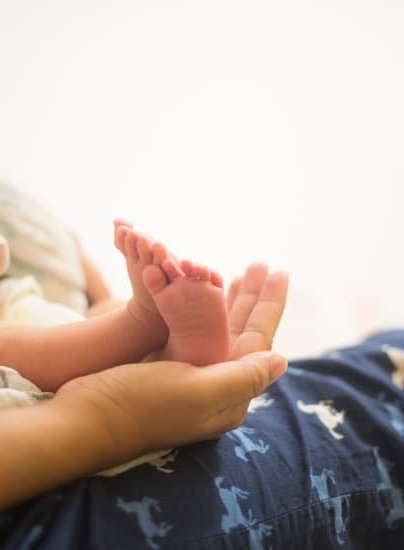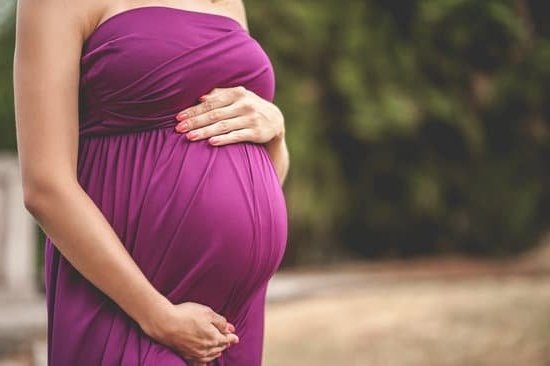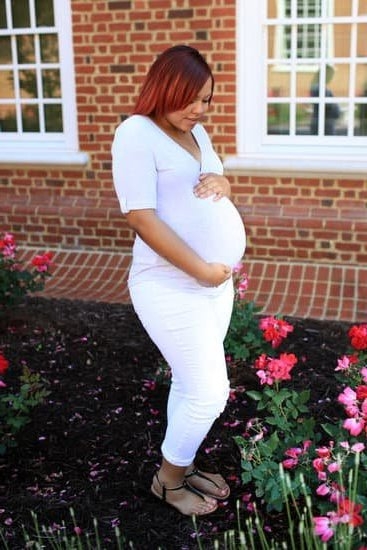Can twins cause false negative pregnancy tests? It is a question that many women may find themselves asking when faced with puzzling results from their home pregnancy test. False negative pregnancy tests can be confusing and concerning, especially for those who are trying to conceive. In this article, we will explore the topic of false negative pregnancy tests, understand why they occur, and specifically investigate how a twin pregnancy could potentially lead to a false negative result.
When it comes to pregnancy tests, accuracy is crucial in determining a woman’s reproductive status. However, there are instances where these tests may not provide accurate results, leading to false negatives. Understanding the reasons behind false negative pregnancy tests can help individuals navigate the complexities of early pregnancy detection and make informed decisions about their reproductive health.
The science behind how pregnancy tests work and detect specific hormones plays a crucial role in understanding why false negatives occur. By delving into the factors that can affect pregnancy test results, such as timing, medications, and medical conditions, individuals can gain insight into the potential causes of inaccurate readings. Additionally, exploring the symptoms of a twin pregnancy is essential for recognizing when further testing may be necessary to confirm or rule out a false negative result.
Understanding False Negative Pregnancy Tests
When it comes to understanding false negative pregnancy tests, it’s important to consider the various reasons why these results occur. One common factor that can contribute to a false negative is testing too early.
Pregnancy tests work by detecting the hormone hCG, which is only present in the body after a fertilized egg implants in the uterus. If a woman takes a pregnancy test too soon after conception, the levels of hCG may not be high enough to be detected, leading to a false negative result.
Another reason for false negative pregnancy tests can be related to improper usage of the test. Whether it’s not following the instructions properly or using an expired test, user error can also lead to inaccurate results. Additionally, certain medications and medical conditions can interfere with the accuracy of pregnancy tests, causing them to produce false negatives.
In some cases, however, false negatives on pregnancy tests can also be attributed to twin pregnancies. In a multiple gestation pregnancy, such as with twins, higher levels of hCG may be produced than in a singleton pregnancy. However, despite this increased hormone level, there are still instances where a home pregnancy test might not accurately detect hCG in a twin pregnancy, resulting in a false negative result.
| Reasons for False Negative Pregnancy Tests | Factors |
|---|---|
| Testing too early after conception | User error and improper usage of test |
| Certain medications and medical conditions interfering with accuracy | Twin pregnancies producing higher levels of hCG but still yielding false negatives |
How Pregnancy Tests Work
Pregnancy tests are a common tool used by women to determine if they are pregnant. These tests work by detecting the presence of a hormone called human chorionic gonadotropin (hCG) in the urine or blood. This hormone is produced by the placenta shortly after a fertilized egg attaches to the uterine lining, and its presence is a sign of pregnancy.
The hCG hormone is unique to pregnancy, and its levels rise rapidly in the early stages of gestation. Pregnancy tests are designed to detect this hormone at varying levels depending on the sensitivity of the test. Most over-the-counter urine-based pregnancy tests can detect hCG levels as low as 25 mIU/ml, while blood-based tests used in healthcare settings can detect even lower levels.
The accuracy of a pregnancy test depends on various factors, including how well it can detect hCG in a woman’s body and when it is taken during her cycle. It’s important for women to understand how these tests work and what factors can affect their results, especially if there is a concern about false negative results due to a twin pregnancy.
| Factor | Effect |
|---|---|
| Sensitivity of Test | Determines the minimum level of hCG that can be detected |
| Timing of Test | Can affect hCG levels in urine or blood and impact test accuracy |
| Type of Test | Urine-based vs. blood-based tests may have different detection thresholds |
Factors Affecting Pregnancy Test Results
There are several factors that can affect the accuracy of a home pregnancy test, leading to a false negative result. These factors include timing, medications, and medical conditions. Understanding these factors can help individuals interpret the results of their pregnancy tests more accurately.
Timing
The timing of taking a pregnancy test can greatly impact its accuracy. Most at-home pregnancy tests are designed to detect the hormone human chorionic gonadotropin (hCG), which is produced by the placenta after a fertilized egg attaches to the uterine lining. Testing too early in the pregnancy or not following the instructions on when to take the test can result in a false negative result.
Medications
Certain medications can interfere with pregnancy test results. For example, fertility medications that contain hCG can potentially cause a false positive result on a pregnancy test. Conversely, medications that contain diuretics or other compounds may dilute urine and affect the concentration of hCG in the body, leading to a false negative result.
Medical Conditions
Certain medical conditions such as ovarian cysts or ectopic pregnancies <can twins cause false negative pregnancy test?> may affect hormone levels in the body and lead to inaccurate results on a pregnancy test. It’s important for individuals with known medical conditions to consult with their healthcare provider about potential effects on their pregnancy test results.
Can Twins Cause False Negative Pregnancy Tests
When it comes to taking a pregnancy test, the expectation is often to receive an accurate result. However, there are instances where false negatives occur, leaving individuals questioning the reliability of the test. In the case of twin pregnancies, false negative results can be particularly common due to specific factors that interfere with the accuracy of the test.
One factor contributing to a false negative pregnancy test in the case of twins is the level of hCG (human chorionic gonadotropin) hormone in the body. Pregnancy tests detect this hormone, which is produced by cells that will eventually become the placenta.
In a twin pregnancy, levels of hCG can be elevated compared to a singleton pregnancy because there are more cells producing the hormone. However, if the test is taken too early or if implantation occurred later than usual, resulting in lower hCG levels at the time of testing, it can lead to a false negative result.
Another reason why twin pregnancies can cause a false negative pregnancy test is improper testing technique. It’s crucial to follow instructions carefully when taking a home pregnancy test to ensure accurate results. Factors such as not using first-morning urine or not waiting for the recommended amount of time before reading results can impact the outcome. Additionally, using an expired or faulty pregnancy test kit can also lead to inaccurate results.
There are also cases where underlying medical conditions such as polycystic ovary syndrome (PCOS) can interfere with pregnancy test results, potentially causing false negatives in both singleton and twin pregnancies. PCOS can cause irregular menstrual cycles and hormonal imbalances, making it challenging to accurately predict ovulation and determine proper timing for pregnancy testing.
This highlights how important it is for individuals with unique health concerns to seek guidance from healthcare professionals when trying to confirm a pregnancy, especially in cases where twins may be a possibility.
Symptoms of Twin Pregnancy
When it comes to twin pregnancies, there are some signs and symptoms that may indicate the need for further testing, especially if a false negative pregnancy test has been received. It’s important to recognize these symptoms in order to ensure the health and well-being of both the mother and the babies.
Increased Pregnancy Symptoms
One of the key indicators of a potential twin pregnancy is an increase in typical pregnancy symptoms. This can include more intense morning sickness, extreme fatigue, and heightened mood swings. Women who suspect they may be pregnant with twins and experience these intensified symptoms should consult their healthcare provider for further evaluation.
Rapid Weight Gain
Another common symptom of a twin pregnancy is rapid weight gain. While weight gain is expected during pregnancy, women carrying twins tend to gain weight at a faster rate due to the increased demands on their bodies. If there is a sudden and significant increase in weight without changes in diet or exercise, it could be a sign of a twin pregnancy.
Measuring Large for Gestational Age
During prenatal check-ups, healthcare providers measure the size of the uterus to track fetal growth. Women who are pregnant with twins often measure larger than expected for their gestational age due to the presence of two babies instead of one. If a woman consistently measures large during appointments, it could be an indication of a twin pregnancy and may warrant additional testing.
When to Seek Medical Advice
When it comes to the possibility of a false negative pregnancy test due to carrying twins, it is important to know when to seek medical advice. While many factors can affect the results of a pregnancy test, it is especially crucial for women who suspect they may be carrying twins to consult a healthcare professional if they receive a negative result.
- Missed Period: If you have missed your period but received a negative pregnancy test result, especially if you have been experiencing symptoms of pregnancy, it is advisable to seek medical advice.
- Strong Pregnancy Symptoms: If you are experiencing strong symptoms of pregnancy such as extreme fatigue, nausea, and breast tenderness, but continue receiving negative results on pregnancy tests, it may be a sign that further investigation is necessary.
- Fertility Treatments: Women who have undergone fertility treatments or procedures such as in vitro fertilization (IVF) have a higher chance of conceiving multiples. In these cases, consulting a healthcare professional early on is recommended.
In cases where there is suspicion of a false negative result due to carrying twins, seeking medical advice promptly can help ensure that proper prenatal care and monitoring can be put in place. The confirmation of a multiple pregnancy can lead to specific healthcare considerations and adjustments in prenatal care.
One thing women should keep in mind is that even if they initially receive a false negative result on a home pregnancy test, it does not necessarily mean they are not pregnant with twins. Consulting with a healthcare professional and possibly undergoing further testing such as blood tests or ultrasound scans can provide more accurate information about the possibility of carrying twins.
Conclusion
In conclusion, while false negative pregnancy tests can be frustrating and confusing, it is important to understand the various factors that can contribute to this outcome. In the case of twin pregnancies, the presence of two embryos can lead to lower levels of the pregnancy hormone hCG in the early stages, potentially resulting in a negative test result.
It is crucial for individuals who suspect they may be pregnant with twins to be aware of this possibility and consider seeking medical advice if they experience symptoms or have concerns about their test results.
It is also important for individuals to familiarize themselves with the signs and symptoms of a twin pregnancy, such as rapidly increasing weight gain, severe morning sickness, and heightened fetal movement. By being aware of these indicators, individuals
For those who have received a false negative pregnancy test result and believe that a twin pregnancy may be responsible, it is recommended to consult a healthcare professional for further testing and evaluation. Additionally, resources such as reputable websites, books, and support groups focused on twin pregnancies

Welcome to my fertility blog. This is a space where I will be sharing my experiences as I navigate through the world of fertility treatments, as well as provide information and resources about fertility and pregnancy.





